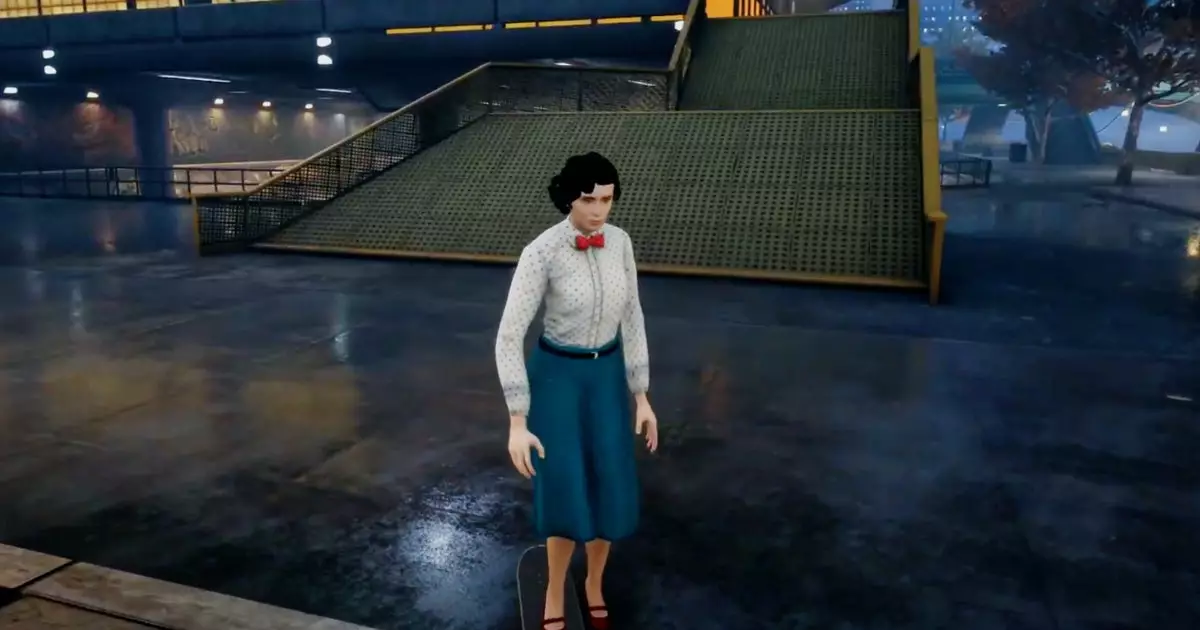In an era where digital entertainment is ever-evolving, the power of modification—or modding—remains a testament to the intrinsic human desire for personalization and artistic expression. The recent release of Tony Hawk’s Pro Skater 3+4 exemplifies this phenomenon, demonstrating how a nostalgic gameplay experience can be infused with fresh, creative content. Instead of just reliving childhood memories, players now have the opportunity to reimagine those memories in wildly inventive ways. The modding community, already active during the early access period, transforms the game from a static experience into a dynamic playground where imagination is the only limit. It’s not merely about swapping characters; it’s an act of cultural reinterpretation, allowing players to see familiar figures—from Mary Poppins to CJ from Grand Theft Auto—in new, unexpected contexts.
This creative freedom elevates gaming from mere entertainment into a form of participatory art. The community-driven modifications showcase a collective passion for remixing and transforming digital worlds. Such efforts highlight how gaming platforms now serve as interactive canvases, enabling players to shape their experiences instead of passively consuming pre-constructed narratives. This democratization of content creation turns players into artists, fostering innovation and community engagement that surpass traditional game design boundaries.
The Significance of Cross-Cultural and Pop Culture Mashups
What is particularly striking about the modding scene surrounding THPS 3+4 is the audacious blending of disparate cultural icons—like the quintessential Mary Poppins tearing up parks on a skateboard or Tommy Angelo from Mafia lending his style to the skate park. These mashups not only evoke humor or surprise but serve as cultural commentary, blurring lines between worlds that traditionally coexist separately. They reflect a broader societal tendency to remix identities, challenge norms, and embrace diversity through satire and parody.
By porting characters from vastly different narratives—be it a Victorian nanny, a gangster, or a Disney princess—modders are engaging in a form of playful subversion. These alterations question what is sacred in pop culture, inviting players to reconsider the essence of iconic figures. Moreover, they underscore the enduring relevance of these characters, proving that even in a playful setting, they can be reinterpreted in ways that resonate personally and socially. The inclusion of detailed backstories, like Mary Poppins’ skateboarding career post-movie, adds depth to these humorous tweaks, transforming superficial edits into mini-stories that enrich the gaming experience.
Beyond Nostalgia: The Future of Modding as Artistic Expression
The sheer enthusiasm and ingenuity displayed by modders such as Huckleberrypie reveal a shift in how we perceive digital content. What began as simple game tweaks has now evolved into a vibrant subculture where storytelling, artistry, and technical skill converge. The presence of mods that enhance gameplay—like custom restarts and free-roam cameras—demonstrates a desire to improve user experience, making games more customizable and accessible.
But perhaps most exciting is how modding invites an ongoing dialogue between creators and players. It fosters a culture where feedback and shared ideas lead to continuous evolution. With the advent of easier-to-use modding tools and a passionate community backing it, the future promises increasingly complex and artful remixes. This echoes a broader trend in the digital age: content is no longer static but fluid, subject to personal interpretation and innovation.
The boundary-pushing creativity present within the modding community challenges traditional notions of authorship and ownership in gaming. It encourages players to see themselves not just as consumers but as co-creators. This democratization heralds a future where gaming becomes a truly collaborative, ever-changing art form—where beloved classics can be reborn anew through the lens of individual imagination.

